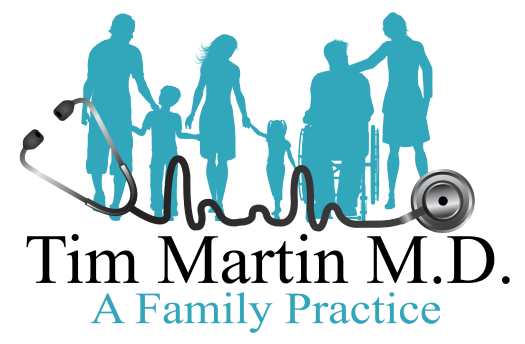
If you’re addicted to opioids, you feel like you’re stuck in a hopeless situation. At Tim Martin M.D., board-certified physician Dr. Tim Martin and our care providers are here to offer you a ray of hope.
Through our innovative treatment program for opioid dependence, we’re helping patients in Abilene, Texas, ditch their dependence and lead healthy, happy lives free from the prison of opioid abuse.
If you or a loved one is struggling with opioid addiction, here’s a look at how our team can help you find hope and beat the addiction.
Why are opioids addictive?
Opioids can be addictive — even when only used for a short period of time — because of the effect they have on your brain. When you take opioids, endorphins are released into your brain.
These endorphins are called the “feel-good neurotransmitters,” and create a strong sense of wellbeing, euphoria, and calm. Their effect doesn’t last, however, and as soon as it wears off, some people are anxious to bring it back and take more opioids.
As your opioid use increases, your brain rewires itself as it expects more and more of the drug and its effects. The result? Dependence on and addiction to opioids.
How can I tell if I have an opioid addiction?
If you think you may have an opioid addiction, it’s important to get an evaluation with an opioid dependence specialist, like Dr. Martin. We know it’s hard to discuss this sensitive issue, but talking about your struggle honestly is the best way to get help.
Some signs of a problem with opioids include:
- Problems with attention
- Difficulty with memory
- Dramatic changes in mood or psychological condition
- Decreased libido
- Sexual dysfunction
Our compassionate care team works with you to determine whether you have an addiction and the severity of your opioid dependence. Successful treatment depends on designing a plan for your unique needs.
What happens if I stop taking opioids?
Opioids affect brain chemistry. This can make quitting on your own difficult because your body is dependent on the drug. Withdrawal symptoms vary between people, both in severity and duration, and include:
- Anxiety and agitation
- Fatigue and/or sleep trouble
- Excessive yawning
- Runny nose and watery eyes
- Hot and cold sweats
- Aching, painful muscles
- Gastrointestinal upset (e.g., nausea, vomiting, and diarrhea)
- Changes in appetite
For most people, these symptoms do not resolve quickly. Depending on the severity of your dependence and unique physical makeup, withdrawal can last from one week to about a month. These lasting withdrawal symptoms are what cause many people to relapse.
Are there treatments available to help me break my dependence on opioids?
Yes! You don’t have to battle opioid addiction alone. The team at Tim Martin M.D. customizes a treatment plan for you depending on the severity of your addiction and other medical and mental health factors.
Dr. Martin finds most people have great success with SUBOXONE® therapy. SUBOXONE is a prescription medication designed to help ease the symptoms of withdrawal. It helps your body adjust to life with opioids, so you can get back to healthy living.
SUBOXONE contains two main ingredients: buprenorphine and naloxone. These ingredients help you manage your withdrawal symptoms in different ways.
Buprenorphine
Buprenorphine blocks the opiate receptors in your brain. Your brain receives enough to prevent extreme withdrawal symptoms while at the same time reducing your cravings for opioids by preventing you from getting high. Drugs that create this effect in your brain are called partial opioid agonists.
Naloxone
Naloxone works differently than buprenorphine because it is an opioid antagonist. This means it prevents opioids from binding to the receptors in your brain. If you take opioid medications while taking an opioid antagonist, you won’t be able to feel the effects of the drug.
The combination of the powerful ingredients in SUBOXONE is designed to keep your cravings in check by preventing you from getting high while giving your body enough of what it needs to ease the symptoms of physical withdrawal.
Dr. Martin also offers similar medications, like ZUBSOLV® and BUNAVAIL®, if SUBOXONE isn’t right for you. Dr. Martin also works with you to get you the additional help you need with referrals to private therapists and Narcotics Anonymous.
If you’re ready to learn more about overcoming opioid addiction, contact our Abilene office to schedule a consultation, or request an appointment online now!
